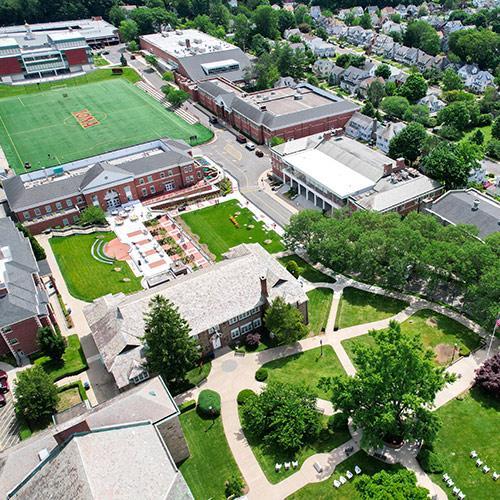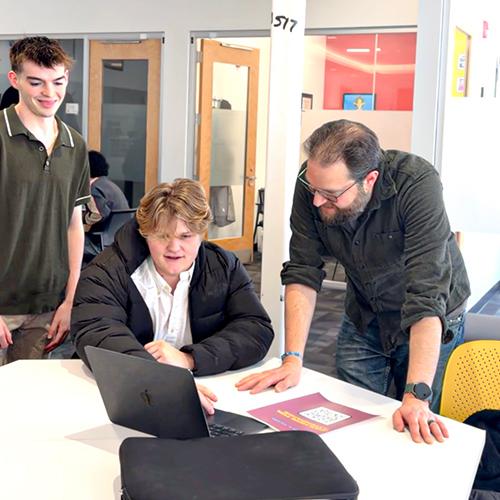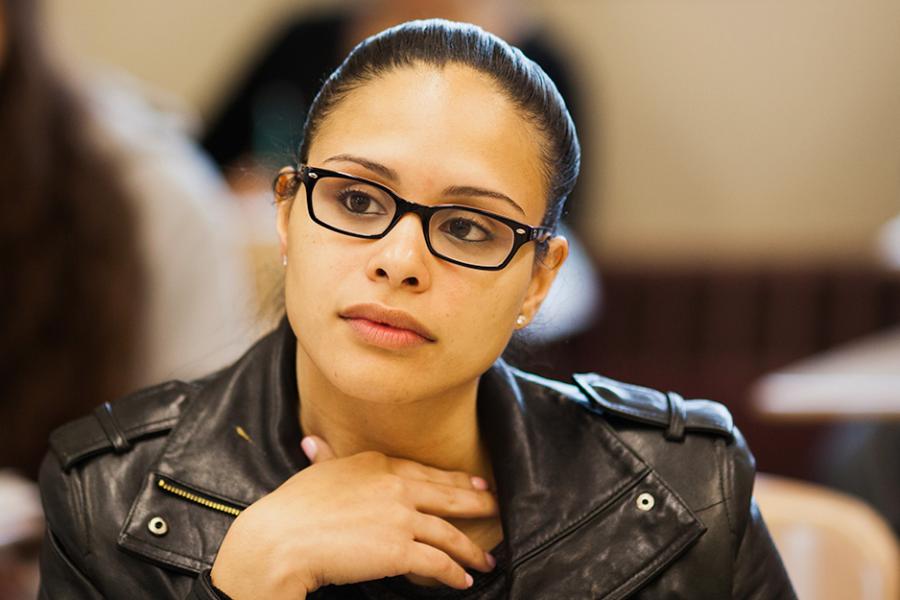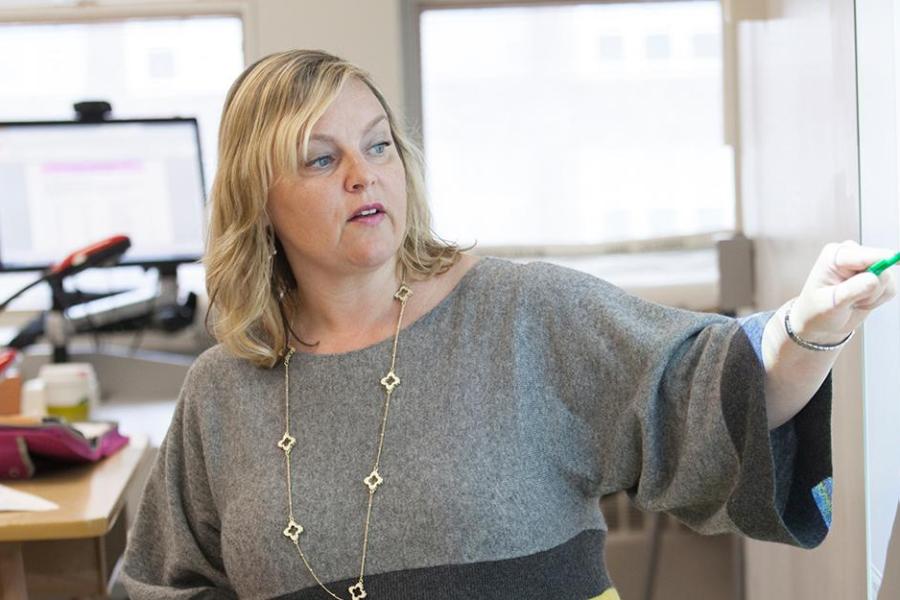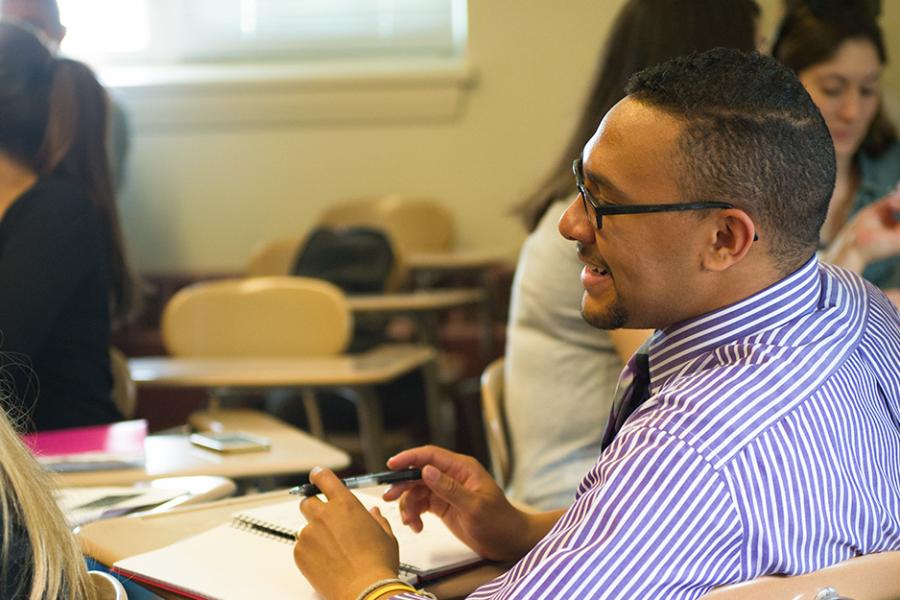Experimental Psychology Master’s Program (MA in Psychology)
Take the Next Step
Request More Information
*Required
Virtual Open House, 1/8/26
Join us to explore Iona’s innovative graduate psychology programs, designed to prepare you for real-world impact and meaningful careers.
A master’s in experimental psychology from Iona University prepares students to explore the “how” and “why” behind human behavior through scientific research and data analysis. Designed for those who are curious, analytical, and passionate about psychology, this program emphasizes experimental methods, quantitative analysis, and thesis-driven inquiry. Students learn to formulate hypotheses, conduct research, analyze data, and publish meaningful findings, all under the guidance of expert faculty mentors.
Whether you aim to pursue a Ph.D., work in a lab setting, or advance in behavioral science roles, Iona’s MA in Psychology with a general-experimental specialization offers a flexible curriculum, hands-on lab experience, and the foundational knowledge to build a successful future in research, academia, or applied psychology.
What Is Experimental Psychology?
According to the American Psychological Association, “Experimental psychologists use scientific methods to collect data and perform research.” As part of a scientific practice, psychological theories and understandings are based on carefully executed research. Experimental psychology is a specialization that develops hypotheses and conducts experiments that are designed to answer psychological questions. An experimental psychology master’s program prepares students to do the following:
- Develop a hypothesis and plan to test it
- Seek appropriate approval and funding
- Execute the experiment
- Collect and analyze data
- Draw conclusions and publish relevant research
This focus is different from that of someone who has earned a master’s in school psychology and chooses to devote their career to working with students, faculty, and administrators in an educational setting.
Why Choose Iona’s MA in Experimental Psychology?
Iona University has a diverse and successful Psychology and Neuroscience Department. Backed by faculty who have practical experience as well as teaching expertise, the Iona master’s in experimental psychology program serves as the ideal launching pad for many careers in psychology. Full-time students in Iona’s program typically complete their degree in four semesters over two academic years. However, by taking advantage of summer course offerings,some students may be able to accelerate their progress and finish in less than two years.
Quick Facts
Tuition and Financial Aid
We encourage you to utilize our Graduate Tuition Estimator to get an estimate of potential tuition costs after scholarships have been applied, based on current rates.
Explore scholarships and awards for graduate students here and contact Student Financial Services to learn more.
What to Expect
- Finish in four semesters
- Hybrid learning format
- Optional summer online courses
- Thesis project
- Preparation for career development or doctoral-level study
Degree Outcomes
Titles held by Iona graduates include:
- Director of Counseling Services
- Psychological Consultant
- Clinical Research Coordinator
- Experimental Researcher
FAQs
The experimental psychology master’s program includes research methods such as quantitative analysis and thesis-driven inquiry. In addition, students learn critical skills for developing their own psychological experiments, including how to formulate hypotheses, analyze data, and synthesize findings for publication. Students in the MA program are required to take both Experimental Research Methods in Psychology and Quantitative Research Methods in Psychology: Advanced Concepts as part of their degree plan.
Learning best practices for designing experiments and analyzing data is crucial for ensuring that psychology professionals understand how to produce valid scientific data. According to a study published by the National Institutes of Health, “To improve scientific research, we also need to understand the mechanisms that maintain bad practices in individual humans,” which means it’s essential to train experimental psychologists to remain aware of the potential for bias in both their experiments and the resulting data.
Yes, graduates of the MA in Experimental Psychology program can apply to doctoral programs in psychology. A PhD in experimental psychology is not necessarily required but could be, depending on the career path students take. According to the American Psychological Association (APA), some people who earn a master’s in experimental psychology “choose to work in a lab or on other research teams after earning their master’s degrees. After a few years of first-hand experience, many return to school to earn doctoral degrees.”
Most doctoral program admission requirements do not include a master's degree. However, for students who did not study psychology as undergraduates or who are unsure of their career paths, earning a master’s degree can be an excellent step toward a future career in experimental psychology without the expense and time commitments of a PhD program.
Yes, students in the MA in Experimental Psychology program must complete a thesis. To enroll in the three-credit thesis supervision course, students must first complete 18 to 30 credits in the psychology department and request department approval.
According to an article in the NACADA Journal, a master's thesis “plays a key role in three dimensions of graduate education: quality evaluations of programs, student mastery of a recognizably valuable set of learning outcomes, and as a facilitator in resolving certain developmental issues” for the students. The same article goes on to note that completing a thesis in the context of a master’s degree helps students gain confidence in their time management skills and develop interpersonal skills for “close, sustained, and critical collegial interaction with a mentor.” By requiring a thesis project, the Iona MA program gives its graduates an opportunity to get the most out of a master’s program and prepare them for their future professional roles.
Graduate students in the psychology department are eligible to assist faculty with research and develop their own experiments. All research conducted within the purview of the master’s program is subject to faculty oversight and institutional review. Part of learning to develop research projects, such as in the course of completing a thesis, is learning about identifying funding sources and applying for funding. Students may find themselves assisting with research projects across many different psychology subfields, including cognitive psychology, addictive behaviors, and behavioral neuroscience.
Graduates of the MA in Psychology (Experimental Psychology) go on to pursue a range of different career paths in research academia and industry. Students who choose to pursue academia go on to pursue doctoral degrees and careers at prestigious institutions across the country, including the University of Colorado, the University of Massachusetts at Boston, and Yale.
Graduates from the MA in Experimental Psychology program have gone on to assume roles as psychological consultants, clinical research coordinators, experimental researchers, and more. According to the U.S. Bureau of Labor Statistics, the demand for psychologists is expected to grow by 6% between 2024 and 2034, which is faster than the average for all professions, but this data also includes clinical psychologists who have doctoral degrees.

Program Curriculum and Research Focus
Research methodology is a core component of the experimental psychology program. However, flexibility is built into the degree, which features three required courses and a myriad of electives designed to allow students to choose their own paths forward.
The courses required for the master’s in experimental psychology include:
- Experimental Research Methods in Psychology
- Quantitative Research Methods in Psychology: Advanced Concepts
- Thesis Supervision
With these foundational choices to build upon, students can choose from core courses and electives that are as varied as:
- The Psychology of Exceptional Individuals
- Conflict Resolution: Theory and Practice
- Physiological Bases of Behavior
- Understanding and Treatment of Addictive Behavior
Required courses, core courses, and electives are all selected based on best practices in psychological research and the scientific method. Learn more about Iona's Psychology and Neuroscience Department to decide which courses are right for you.
Career Pathways with a Master’s in Experimental Psychology
What can you do with a master’s in psychology? Many experimental psychology degree program graduates go on to earn doctoral level degrees to further their careers, while others leverage their research skills to work in labs or as consultants. The research focus of this degree plan makes working in a lab as a researcher or lab manager a natural fit.
To earn their licensure as a practicing psychologist, graduates must earn their doctoral level degrees, such as PhDs or PsyDs. Students who did not study psychology as undergraduates can benefit from earning a master’s in psychology to build the skills they need to apply to doctoral programs.
Job Titles
- Clinical Research Coordinator
- Director of Counseling Services
- Psychological Consultant
- Lab Manager
- Experimental Researcher
Our graduates have gone on to work or attend doctoral programs at the following locations:

Faculty Mentorship and Lab Opportunities
Students in the Iona University master’s in psychology (general-experimental specialization) program will have the opportunity to engage with experienced and dedicated faculty, both inside and outside of the classroom.
An article in the Journal of Public Affairs notes that “For graduate students, mentorship offers valuable emotional support during the highly stressful phases of their academic journey, with long-lasting effects on their careers.” Choosing a graduate program that values faculty mentorship and encourages students to develop these crucial relationships can lead to positive results throughout graduates’ careers.
The experimental psychology program at Iona also places great importance on laboratory experience. Students will have the chance to develop experiments alongside faculty and conduct research in the University’s well-equipped labs.
How to Apply to Iona’s Experimental Psychology Graduate Program
To apply for Iona’s MA in psychology, general-experimental specialization, you will need to complete a graduate program application. In addition to the application itself, prospective students must submit the following:
- Two letters of recommendation (applicants with an undergraduate GPA that is higher than 3.0 may submit one academic recommendation)
- Official transcripts from all undergraduate programs attended
- Current resume
- Completion of at least nine credits of psychology courses, including Statistics for Behavioral Sciences and Research Methods
You can also choose to explore all programs at Iona and find the one that best suits your professional goals.
Find out what an Education from Iona can do for you
Visit Campus
Our scenic campuses, located just 20 miles from midtown Manhattan, truly do offer the best of both worlds.
Let us show you around, answer your questions and give you a feel of our tight-knit community.
Apply Today
If you're considering applying to Iona, you're not alone! Since 2019, our new-student enrollment is up nearly 40%. Graduate students automatically qualify for consideration of merit scholarships during their graduate programs. Start your application today.
Request More Information
Learn more about Iona University today!
